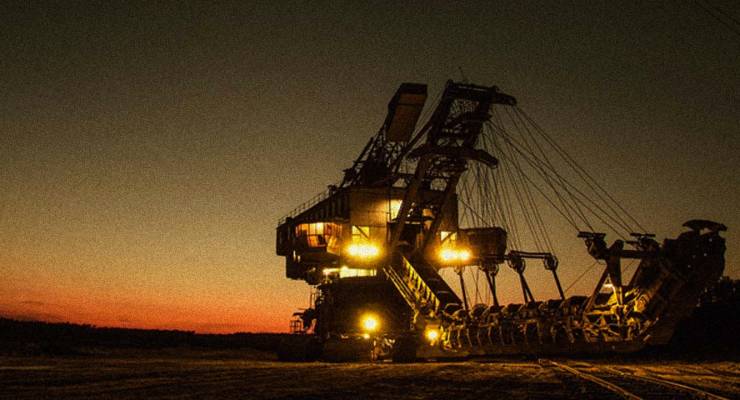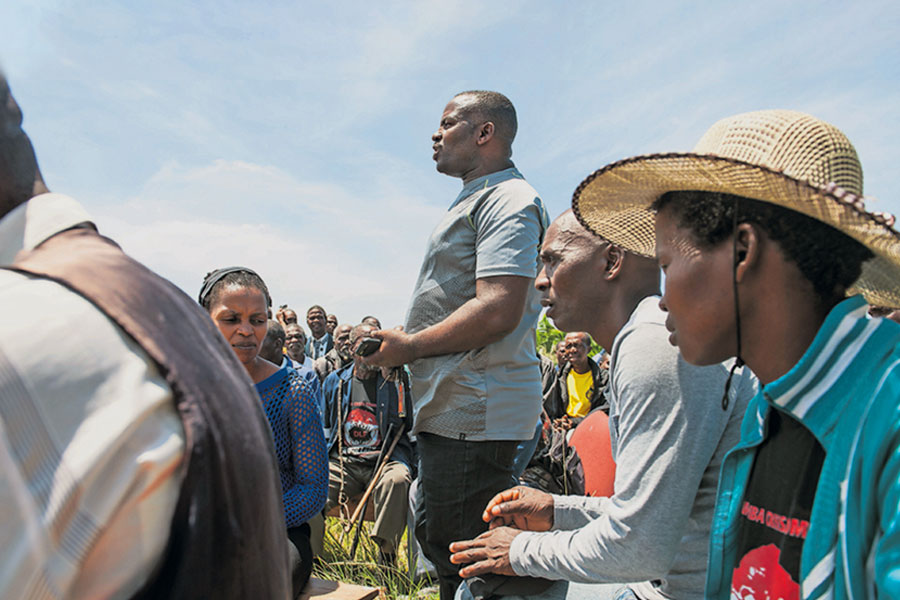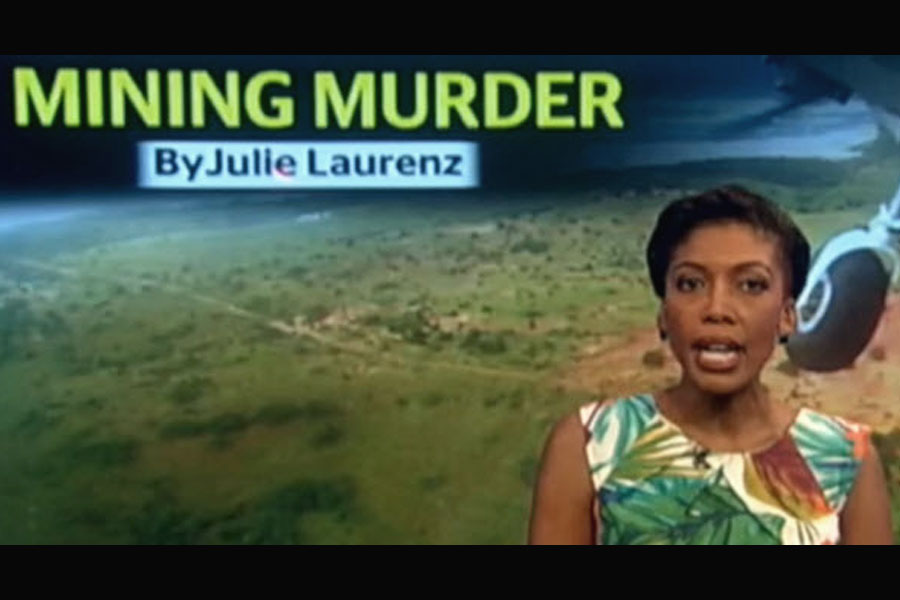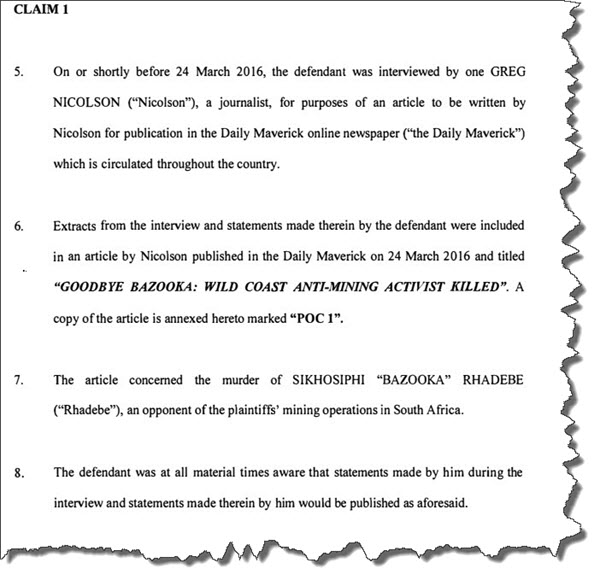
Far from the red dirt of the Pilbara and the goldfields of Kalgoorlie is Kolwezi, a small, dusty town — rich with cobalt and copper reserves — near the southern border of the Democratic Republic of the Congo. It might not look like it, but Kolwezi is at the frontier of Australia’s newest mining boom.
Australia has more mining operations across Africa than any other country according to reliable estimates, with at least 170 Australian-listed companies participating in what some have called a “Golden Age” of Australian-African relations. They operate more than 400 projects across 35 countries, with a potential value calculated at more than $40 billion.
The lure of Africa’s mineral wealth is so enticing to some miners that they see stability in dictatorships. Gold miner Resolute Mining last year boasted that a new $22 million stake in mining projects in Sudan would make the company a “first mover” in a region that is host to the largest gold rush Africa has seen in centuries.
“Similar to Resolute’s entry into Ghana and Tanzania in the late 1990s, we are convinced this region of Africa will soon host new modern gold mines,” CEO John Welborn proclaimed.
But less than a year later, a bloody military coup has ousted one leader and installed another. And last month, just days before the company celebrated its dual listing in London, violent clashes took over the streets of Khartoum, killing 100. “We are looking at inorganic opportunities,” Welborn said, referring to the company’s appetite for expansion.
About one in 20 mining companies listed on the Australian Stock Exchange now has an investment in Africa according to the Australia-Africa Minerals and Energy Group (AAMEG), a lobby group set up to represent the miners in the region. “Nowhere else in the world do Australian mining firms have so much invested,” the group said in a submission to a 2017 Senate inquiry.
But mining in Africa’s developing nations can be fraught. By pouring cash into one of the world’s most fragile regions, Australia has bought itself power in countries where workers’ rights are flouted, activists face intimidation and murder, corruption is rife, and — in the town of Kolwezi — child slavery is rampant. So how did we get here?
Australian miners flocked to Africa during the 1990s and into the commodities boom of the 2000s, cashed up from investors and lured by the promise of new discoveries in unexplored land opening up under fledgling democracies. These African governments, keen for investment, have long made doing business attractive to foreigners by offering generous tax concessions.
Miners say Australia has the reputation in Africa of delivering entrepreneurs with a “can do” attitude and an appetite for taking on unfamiliar tasks. This is the image that has also been promoted by Australia’s foreign affairs and trade agencies, who have spent years spruiking our status and expertise in the minerals sector. Our ambassadors refer to Australia as a “mining nation” ready to help African countries exploit their mineral wealth, and our ministers rub shoulders with major mining CEOs and heads of state at high-level conferences like Mining Indaba, which this year held an exclusive party at the opulent Life Grand Cafe in Cape Town.
Despite this gung-ho reputation, Australian mining companies operating in Africa haven’t avoided being caught in the “tangled web of greed, corruption, political repression, or simple economic miscalculation” that has come to define the African resources industry. That’s according to Peter Limb, an associate professor in history at Michigan State University, who points to “a basic and relentless contradiction between claims of corporate responsibility and single-minded obsession with profit, irrespective of the social or environmental impact”.
For many African nations, doing business with a wealthy country like Australia brings hope of reducing unemployment and lifting populations out of poverty. And Australian miners are quick to tout their role in improving the lives of local communities. But this promise often contradicts a harsher reality, where high levels of corruption, inequality, political instability and poor infrastructure challenge even the most socially and ethically diligent companies.
This is a boom that has made many in Australia’s resource sector rich, and has thrown a lifeline to others who have fallen on hard times. Just look at Ausdrill, a mining equipment company from Kalgoorlie that has morphed into a billion-dollar empire thanks in large part to its African business, which now earns more than its Australian arm. Its founder, mining tycoon Ron Sayers, says the company wouldn’t exist if it weren’t for Africa. “At the end of the day, it was the growth in Africa that saved the business,” he told The West Australian last year.
Australian miners are digging up a range of minerals in Africa — mainly gold, but also diamonds, copper, coal, titanium, platinum, uranium, lithium, oil, gas and rare earths. They’re most active in South Africa, Namibia, Tanzania, Zambia and Burkina Faso, but also have a strong presence in almost every corner of the continent, including the authoritarian state of Eritrea and the notoriously dysfunctional nation of Zimbabwe. Their activities in these countries are largely hidden from view, besides occasionally making local headlines.
In this series, Inq will zero in on some of these locations to examine Australia’s dominant role in the world of African mining.

South Africa: intimidation, murder and Australian miners
It was early in the evening when two gunmen in a stolen white car with a blue flashing light turned up at Sikhosiphi “Bazooka” Radebe’s house. Introducing themselves as police officers, they forced their way inside the house, pushed past Bazooka’s 17-year-old son and moved swiftly to the back of the house where they found Bazooka. They dragged him outside and moments later, according to local media reports, gunshots were fired. When the real police arrived on the scene they found Bazooka dead, shot several times in the head.
Speaking to Inq more than three years after the incident, in which no arrests have ever been made, Bazooka’s older son Tarzan says he has “no doubt” why his father — a high-profile activist who had led a decade-long fight against a mine near his home in Mbizana on the Wild Coast in the Eastern Cape province of South Africa — was killed. “Before there was no mining, there were no issues,“ he said. “We used to be like one family community.” But the mine has “created enemies in our place”.
Bazooka’s murder is indicative of the culture of fear and intimidation in which South African activists must operate. And it’s one that’s particularly relevant to Australians — the mine that Bazooka had so fiercely rallied against was being proposed by Mineral Commodities, a small Australian ASX-listed company that’s registered to an address in Welshpool, a suburb of Perth.

Shortly before he was killed in March 2016, Bazooka told Tarzan he believed he was on a hitlist, targeted by pro-mine supporters. At the time, he was chairman of activist group Amadiba Crisis Committee, a group he had established nine years earlier to protest the mine slated for his community of Xolobeni (in the Xhosa language spoken by the majority of Eastern Cape inhabitants, the “X” is pronounced as a click, the tongue tapping at the back of the palate).
“He said to me, be careful,” Tarzan told Inq. “I never took it seriously, since I wasn’t involved in the mining thing. But he knew.”
South Africa’s Wild Coast is renowned for its spectacular beaches and rugged coastline. But underneath those shimmering sand dunes lies something much more valuable: titanium, a shiny mineral that can be used for a range of highly sought-after steel products and as a pigment in household paints and plastics. Despite widespread opposition to a mine in the area, the South African government granted permission for Mineral Commodities to develop a 22-kilometre swathe of the coastline in 2008. It was a decision that divided the community into two camps, opponents and supporters of the mine, even ripping families apart. The division within the community was a recipe for violence.
“Whatever we do in our place now, it’s a group that is pro-mining and a group that is anti-mining,” said Tarzan. “If that family member doesn’t like mining, then people won’t attend their ceremony or whatever they’re doing.”
Tarzan says the mine his father opposed remains a source of great anger and fear. “I really don’t understand what kind of development this is, that has to get people fighting each other,” he said. “Truly speaking there is no peace in my life.”
Nobody Inq spoke to suggested that Mineral Commodities had anything to do with Bazooka’s death, and Mineral Commodities have stated publicly that it was “in no way implicated in any form whatsoever in this incident”. But activists and his family say he was a target within the community because he spoke out against the mine, a premise the company fiercely rejects. “Without wishing to derogate the death or importance of investigating the murder of Mr Radebe, there are over 20,000 murders in South Africa each year which is nearly 57 people per day,” company spokesperson Peter Fox told Inq. “The inference that Mr Radebe’s murder is directly linked to the proposed Xolobeni development is unsupported.”
“The global institution of environmental opposition to mining is not new in Xolobeni.”
“The suggestion of strong opposition must be taken in the context of relative numbers in the respective anti- and pro-support groups. There is a pro-support mining lobby which has the same entitlement to be heard as any anti-mining lobby.”
He added: “As a mining company, we are entitled to assess the opportunities that exist in any country to explore and ultimately mine if economically, environmentally and socially sustainable. South Africa, like most countries, bestows the rights of its minerals to the state. This is done so the mineral resources can be developed for the benefit of all South African citizens.”
* * *
A thousand kilometres north west of Xolobeni is Lephalale, a small town in South Africa’s Limpopo province, named for the river that flows through it (Lephalale is a typically musical Setswana word, which means “to flow”). Its rich coal reserves attract companies from all over the world, including Australia.
Francina Nkosi has been an activist opposing the proposed mine near here by Australian company Resgen for years. Around a year ago she started getting anonymous phone calls, she told Inq. She said the callers told her “we are looking at you, stop what you’re doing”. The number would always be blocked. “Sometimes they would just breathe.” At other times, she said, people would openly approach her to claim that she was “trying to steal their jobs away”.
These were not people who worked for Resgen, she said, but people who wanted to. As in Xolobeni, the community is sharply divided. On one side are those who believe the mine will cause irreparable cultural and environmental damage. On the other are those for whom the mine represents a chance at jobs, infrastructure and prosperity that may never come again.
Resgen has been approached for comment.

These controversies are extreme examples of the risks Australian miners take when operating in parts of Africa, a continent where some governments are so eager for foreign investment that they’re prepared to grant approval for mines often against the wishes of local communities.
The cases also highlight the potential dangers of doing business in a country that lacks transparency or fails to uphold the rule of law.
Australian companies operating abroad really have only one overriding obligation: they’re required to act under the local laws of that country. More tenuously, they’re also expected to uphold basic human rights standards under international law and certain Australian laws for serious crimes that have a long reach. For example, companies can be prosecuted in Australia for bribery committed overseas, and there are other pieces of legislation governing what’s known as modern slavery reporting that extend to operations overseas.
And while many African countries have notional rules governing labour standards and human rights, for example, they’re often not enforced as they would be in Australia, according to Keren Adams, a director of legal advocacy at the Human Rights Law Centre. This invariably leads to some Australian companies behaving differently to how they would at home.
“Mining companies bring in hugely needed revenue, and so it puts the states in a difficult position when they break the law,” she said. “There can be a blind eye that gets turned, or in other cases the government is actively complicit in what’s going on, or it is just not able to enforce the rules. Laws may be being broken but communities can’t afford to do anything about it.”
Meanwhile, Adams says the corporate regulator, the Australian Securities and Investments Commission, doesn’t have a strong mandate to govern the behaviour of companies’ operations overseas, meaning they are often left to police themselves.
“It’s definitely true to say companies are often attracted to countries precisely because there are low wages, low overhead costs and a lack of enforcement,” she said.
While Mineral Commodities has announced plans to divest its stake in Xolobeni, it continues to operate another mine about 400 kilometres north of Cape Town, which, since commencing operations in 2014 has also been the target of criticism by environmental groups. It has also initiated defamation proceedings against the Amadiba Crisis Committee founding member, Mzamo Dlamini and five other defendants for comments they made in community presentations and to the media in the aftermath of Bazooka’s death.

Nonhle Mbuthuma, the new spokesperson for the Amadiba Crisis Committee, told Inq the group will not be silenced and will continue to fight for their right to the land. “We’re not going to back off. No matter what. This is our identity,” she said. “This is us.”
She says Australia needs to examine its role in the South African extractives industry, which she says has bought fear, violence and disunity to her community.
“If Australian companies continue to force themselves [here], there will be more lives lost. I don’t think that’s what they want.”
“If you say South Africa is the home of gold, why is it so poor? Who is getting rich from this?”
In response to the lawsuits, a collection of environmental activists and NGOs including Right2Know, Open Secrets, Global Environmental Trust, Oxfam South Africa and groundWork grouped together to launch a campaign called “Asina Loyiko: United Against Corporate Bullying”. In Xhosa, Asina Loyiko translates as “we have no fear”.









Brilliant Crikey! We hear so little of Australia’s engagement in Indo-Pacific. INQ is paying dividends already. This is was news should be.
Have just begun reading this series today. The information is fascinating. Excellent work, Crikey.